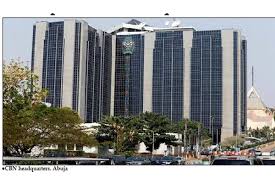Nigeria’s net foreign exchange reserves (NFER) soared to $23.11 billion by the end of 2024, marking the highest level in over three years, the Central Bank of Nigeria (CBN) has announced.
The latest figure represents a significant leap from $3.99 billion in 2023, $8.19 billion in 2022, and $14.59 billion in 2021, underscoring the impact of recent monetary policy adjustments.
In a statement released on Tuesday, the apex bank highlighted that the NFER is a more accurate measure of the country’s forex buffers, as it accounts for near-term liabilities, including FX swaps and forward contracts.
CBN’s Efforts to Strengthen Forex Reserves
Alongside the rise in net reserves, Nigeria’s gross external reserves also increased, reaching $40.19 billion as of December 2024, compared to $33.22 billion at the end of 2023.
The CBN attributed the improved reserve position to deliberate measures to reduce short-term forex liabilities, particularly FX swaps and forward obligations, which have historically strained liquidity.
CBN Governor Olayemi Cardoso emphasized that the rise in reserves was a direct result of strategic policies aimed at restoring investor confidence and strengthening economic stability.
“This improvement in our net reserves is not accidental; it is the outcome of deliberate policy choices aimed at rebuilding confidence, reducing vulnerabilities, and laying the foundation for long-term stability,” Cardoso said.
Key Drivers of Forex Reserve Growth
The CBN outlined several factors contributing to the sharp increase in NFER, including:
Reduction in short-term FX liabilities, such as swaps and forward contracts, which had previously constrained liquidity.
Increased forex inflows from non-oil sectors, reducing Nigeria’s dependence on crude oil revenues.
Policy reforms aimed at stabilizing the FX market, encouraging more sustainable capital inflows.
The bank also credited its macro-prudential measures for restoring confidence among both domestic and foreign investors.
Outlook for 2025: Sustaining the Momentum
Despite seasonal adjustments in the first quarter of 2025, including significant interest payments on foreign-denominated debt, the CBN remains optimistic about maintaining the positive trajectory of forex reserves.
Key expectations for 2025 include:
Improved crude oil production and higher non-oil exports, which will boost forex earnings.
Continued policy measures to enhance external liquidity, ensuring exchange rate stability.
Prudent reserve management to support economic resilience and attract investment.
Governor Cardoso reaffirmed the CBN’s commitment to transparent reporting, sound reserve management, and macroeconomic stability, all aimed at ensuring a sustainable economic outlook for Nigeria.
